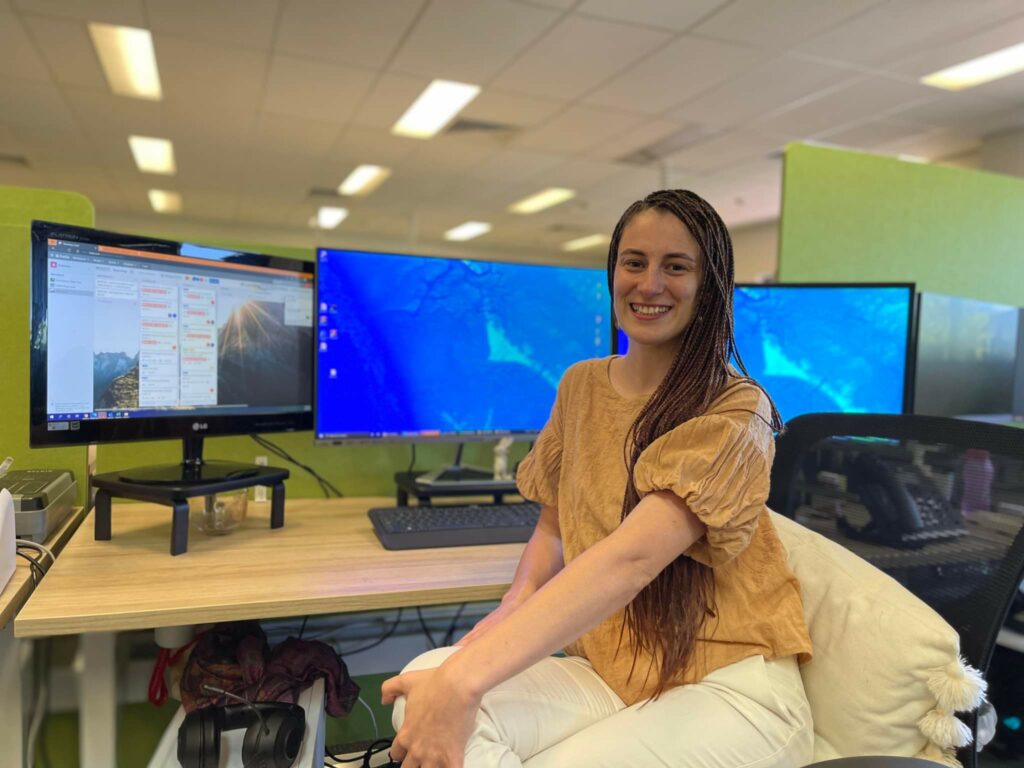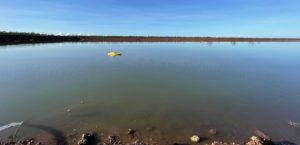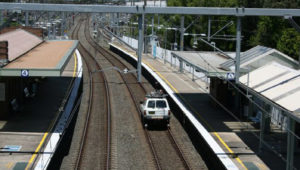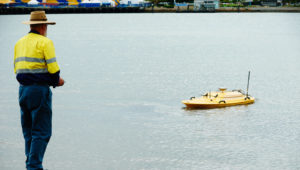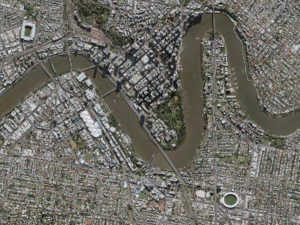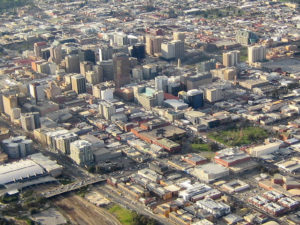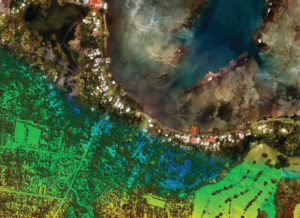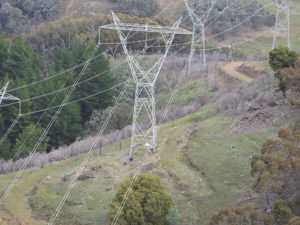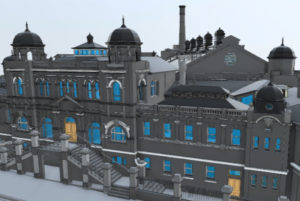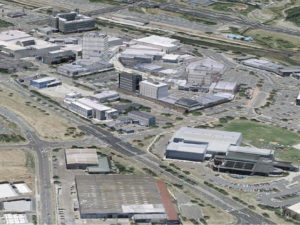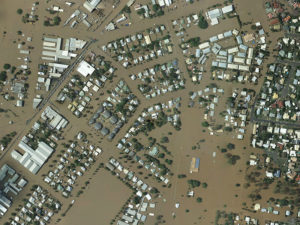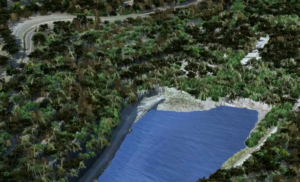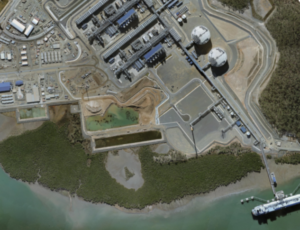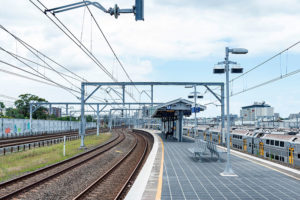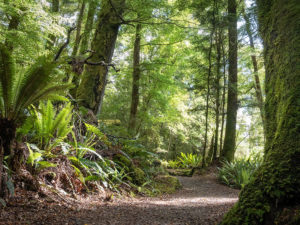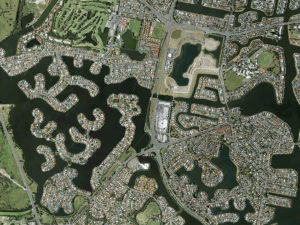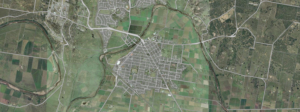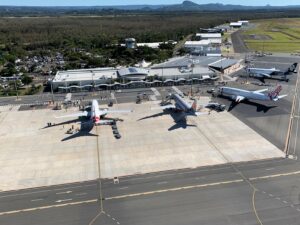Woolpert Project Manager, Alexandra Perry, was invited to join a panel of geospatial professionals at the Brisbane event, Mapping your Future – Experiences, challenges and opportunities working in the geospatial industry. Hosted by the Royal Geographical Society of Queensland Young Geographers, in collaboration with GeoRabble, the panel drew on diverse experiences, backgrounds and skills to drive insightful discussion around spatial data, analysis, communication, and the future of geospatial.
An evening of learning and networking with students, working professionals, and those looking to venture into the world of geospatial, this event saw RGSQ Young Geographers and GeoRabble join forces to connect young professionals and enthusiasts with experienced members and industry leaders.
Alexandra relished her GIS journey, sharing perspectives from a non-technical role, and insight into the geospatial job landscape.
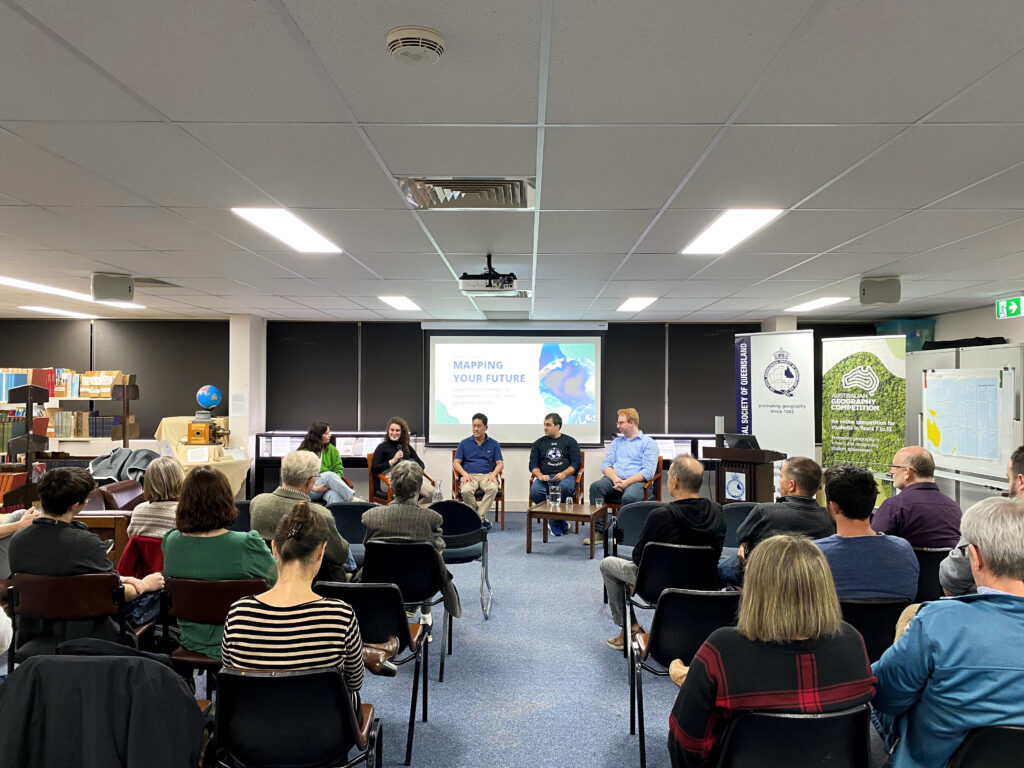
What is your favourite GIS project that you’ve worked on and why?
An old memory from my first role, and one from my first experience with LiDAR quality analysis. On my first day at work, my manager assigned me a monstrous dataset, probably thousands of tiles of classified LiDAR. I was instructed to go and quality assure all this data, tile by tile, in case the client came back with extra revisions. It took me about two weeks to complete, and the client never came back with revisions. Despite this, the exercise was a great learning opportunity to truly get used to working with the data.
What was a challenge you had to overcome and how did you do it?
I have found that making mistakes is a big part of learning, and we can be so self-critical of ourselves. Acknowledging the mistake and putting the necessary steps in place to ensure this does not recur has been most helpful in my own practice.
What are some of the biggest challenges you’ve seen since you began working in the industry?
During the COVID pandemic, being able to adapt to working together and staying connected, but at a distance was a big challenge for industry, me included. Also, being more flexible around outside of work commitments and work life balance to prioritise mental health.
What challenges do you perceive the industry is currently facing and how might new entrants leverage these to create opportunities for themselves?
The industry has resource shortages in surveying, data processing, and sensor operators, to name a few, so there is no better time for new entrants to step into these roles with a keen interest to learn. Study the basics where you can, through courses and work experience, and then connect with likeminded professionals in networks and groups like RGSQ and GeoRabble. Integrating yourself into these communities will help you leverage connections and create opportunities.
How do you recommend others gain experience to become competitive in the geospatial job market?
Your first role is not necessarily going to be in the area you had envisioned, and in today’s workforce, movement between positions is considered the new norm. So, with that in mind, work hard and absorb all the knowledge you can, dip your feet into different areas until you find your passion. Consider a mentor, to help guide you to experience your real potential. Our community is small but active, so make connections and you just might find someone you really click with. I really enjoyed my mentorship with the @Geospatial Council of Australia and have met some pretty inspiring people since then.
About Alexandra Perry
Alexandra Perry emerged into the geospatial industry in 2019. She started her career in LiDAR Processing before joining Woolpert, working as a Project Manager for LiDAR and Aerial Imagery projects across Australia and Internationally. She is interested in developing her soft skills and engaging with fellow peers and clients. She also wants to share her experiences with young professionals, to show how non-technical roles are crucial for project success.
